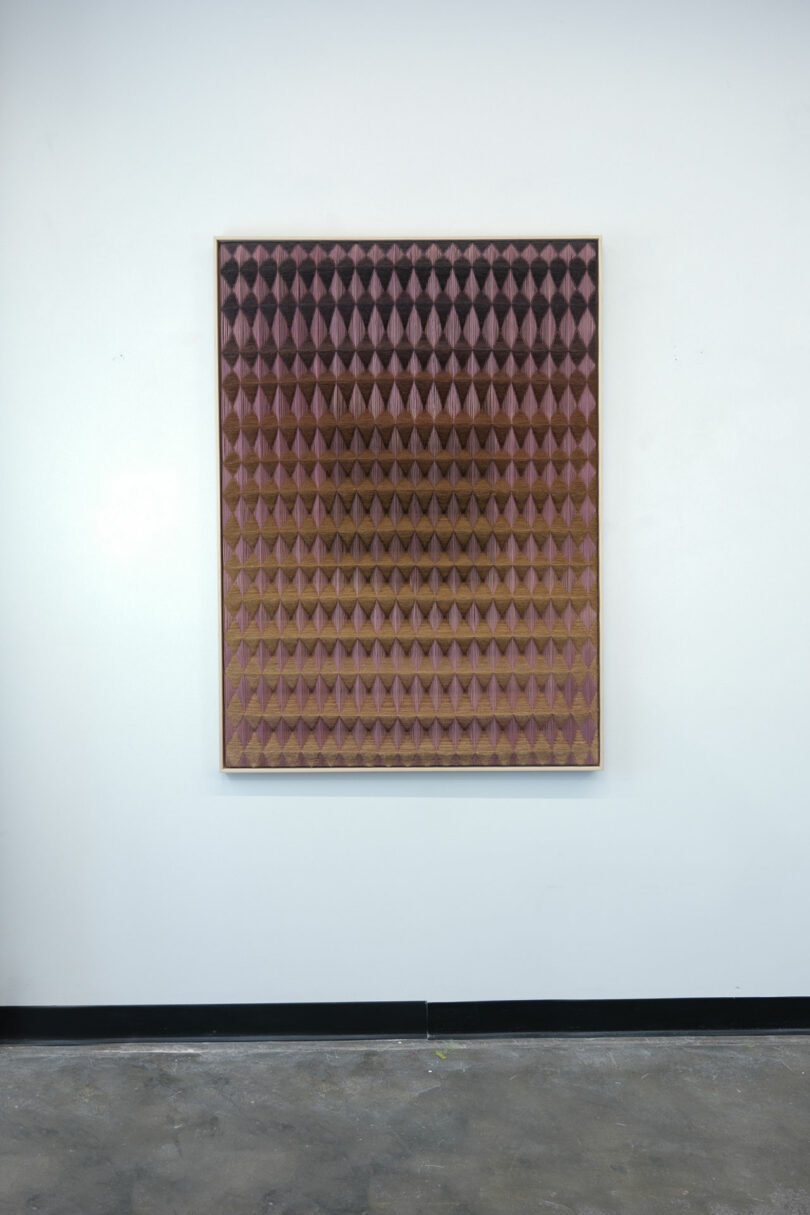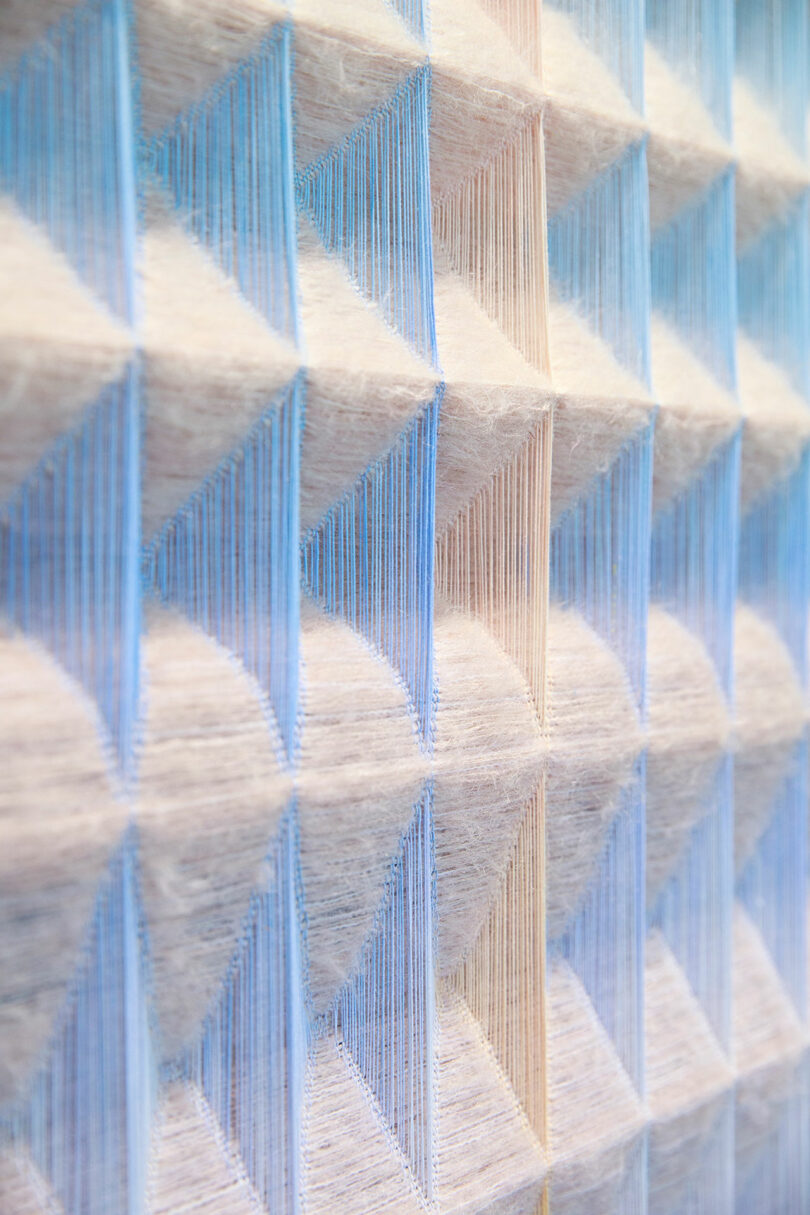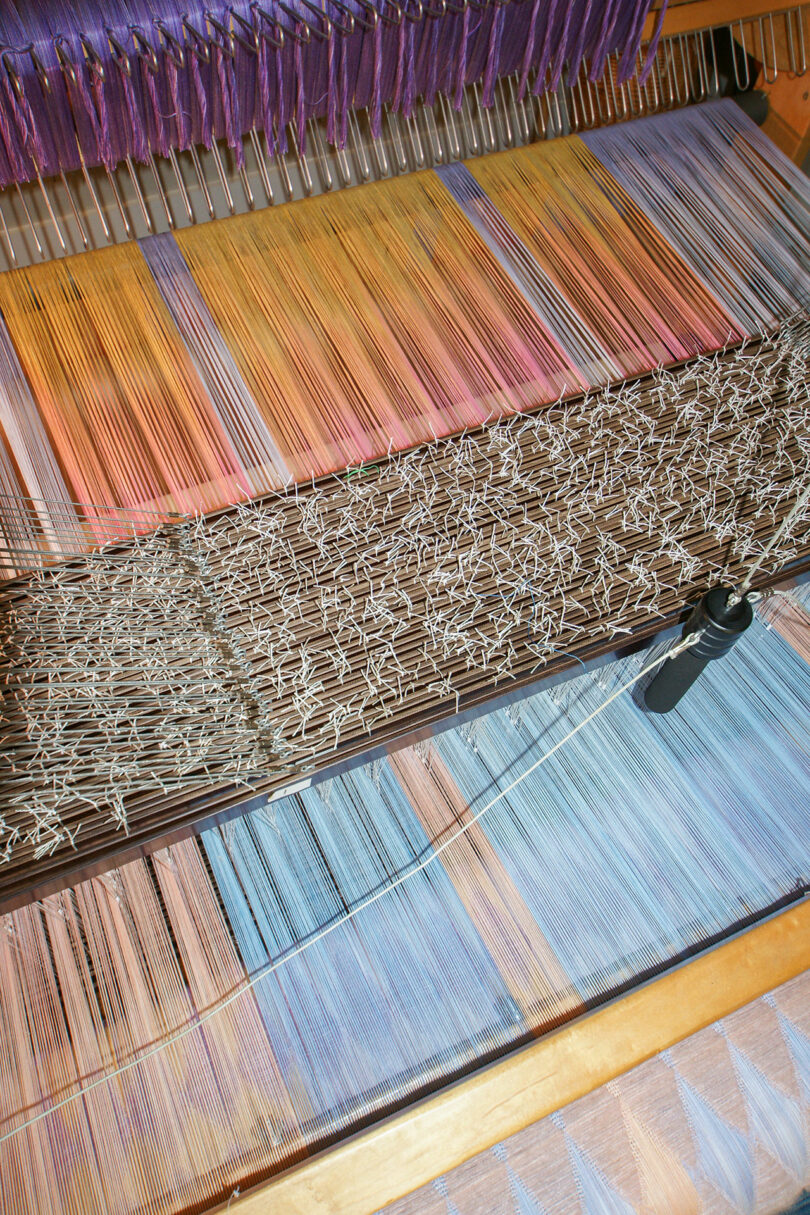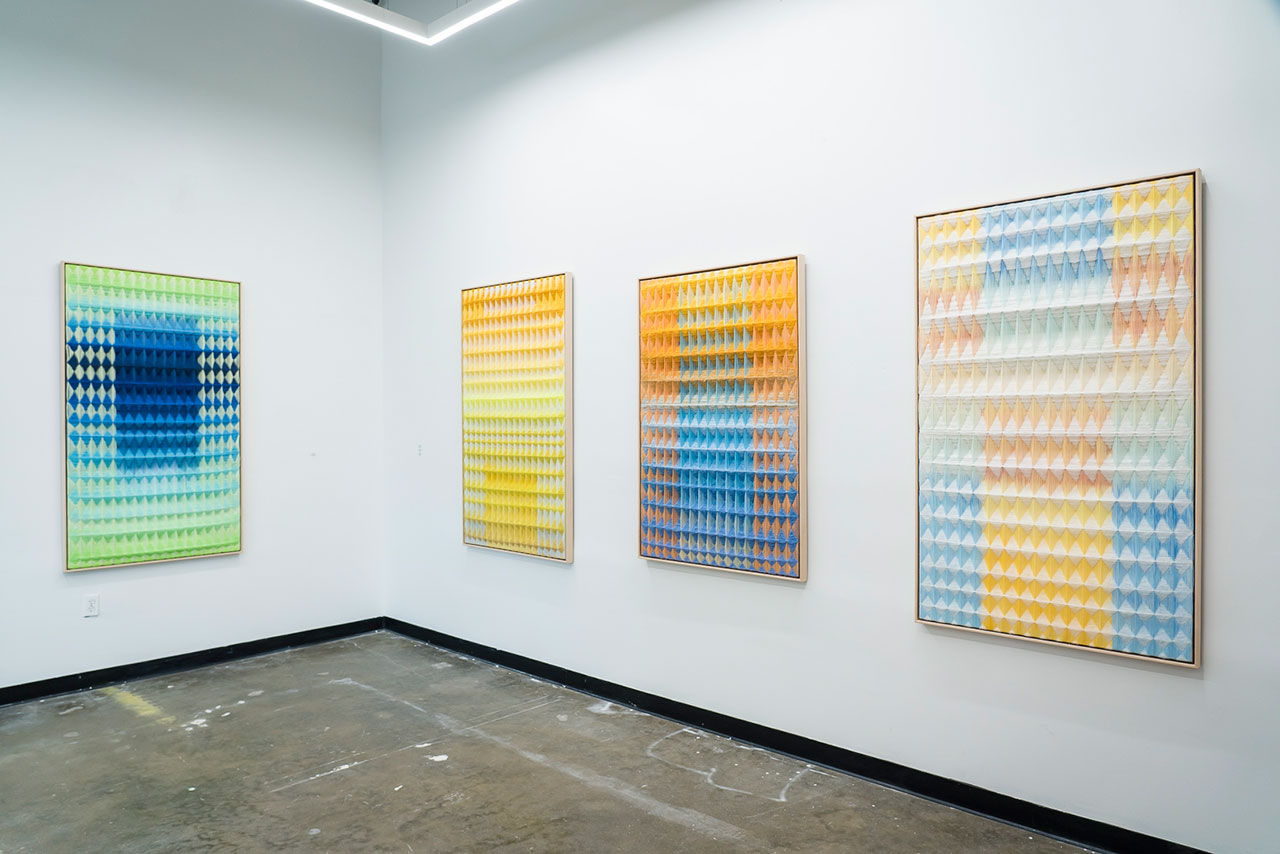Switzerland-born, Texas-based weaver Anya Molyviatis’ creative journey was shaped by her fascination with natural and built spaces, particularly their impact on human perception. After studying sustainable architecture in California, she eventually traveled to Taos, New Mexico. While there, Molyviatis apprenticed with a master weaver, refining her techniques and deepening her focus on material research.
It was a transformative time, and the artist realized that this pursuit was more than a hobby, it was her calling. “It felt like everything aligned when I touched the loom for the first time,” Molyviatis says. “Through weaving, I found a profound way to heighten sensory experiences using textures, colors, and fibers to transform spaces.”
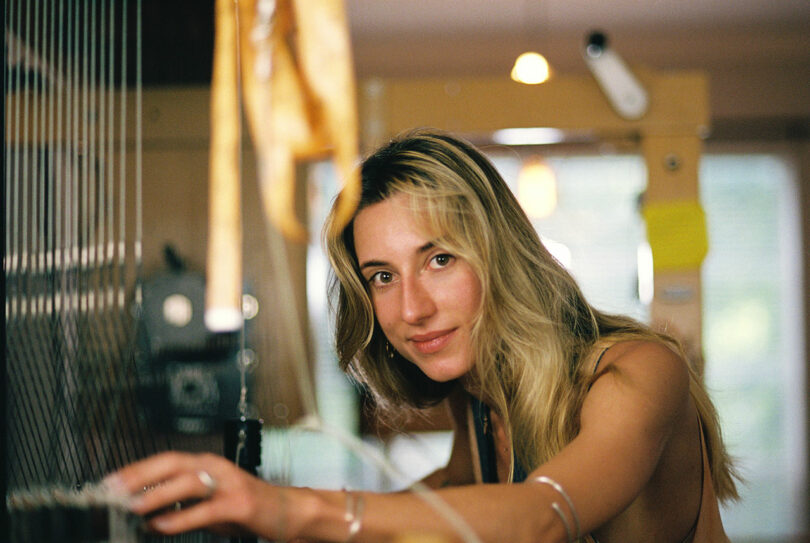
Anya Molyviatis
Molyviatis sought out makers and workshops that aligned with her vision, but none fully resonated with the innovative approach the artist had in mind. Utilizing weaving as a tool with untapped potential, she formed her eponymous studio in 2021. Her works continue to garner interest because they each offer a tactile quality that today’s modern environments lack.
There are an array of notebooks and sketch pads scattered around the studio, because Molyviatis writes down or sketches ideas as soon as they come to her. Writing by hand allows her to connect with concepts in a physical way, the antithesis of getting lost in a multitude of computer files.
Every element that is a part of the craft tells stories of the landscapes they come from. It’s why Molyviatis can often be found outdoors. “When I need to switch off from work and reset, I turn to nature – swimming and hiking are my go-to activities,” she notes. “These experiences are vital for someone like me, who spends most of the day in a studio surrounded by looms, yarns, and creative thoughts. The rhythm of nature is grounding, and it provides a needed contrast to the intense focus that weaving demands.”
Today, Anya Molyviatis joins us for Friday Five!
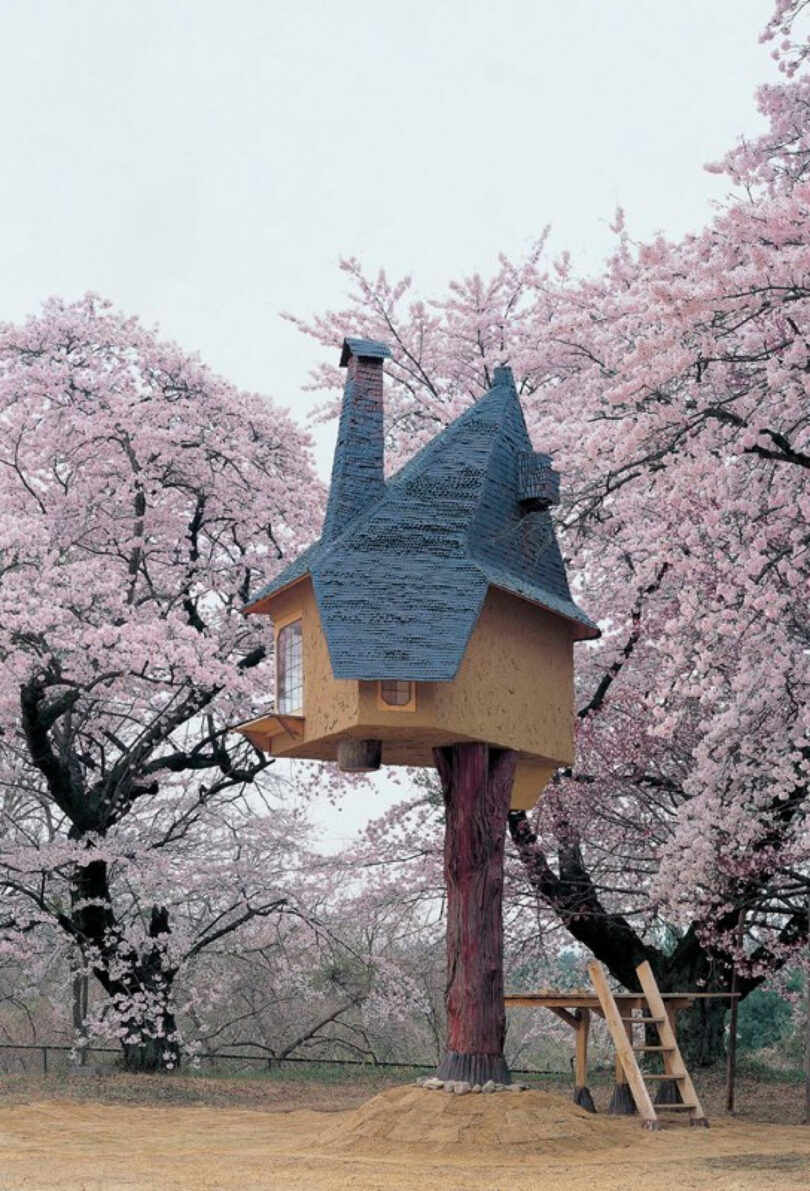
Photo: Akihisa Masuda courtesy of World Architecture
1. Teahouses by Terunobu Fujimori
I’ve been a longtime admirer of Fujimori’s work, particularly his ability to incorporate traditional Japanese building techniques in such a playful and imaginative way. I love how he invites people from all walks of life to help construct his tea houses, creating a communal experience around his architecture. What fascinates me most is his thoughtful approach to how we experience a space. Fujimori designs his teahouses to alter your usual way of entering, making the journey into the space an integral part of the experience. Whether it’s climbing a ladder or navigating a unique doorway, these subtle shifts in how you enter transform your relationship with the space itself. His work, whether set in a remote wilderness or an urban landscape, always evokes a sense of wonder, blending tradition with a dreamlike quality. Fujimori masterfully infuses magic into his designs in a way that is both elegant and approachable, sparking curiosity and, most importantly, bringing a smile to everyone who encounters his work. To me, that’s incredibly powerful.
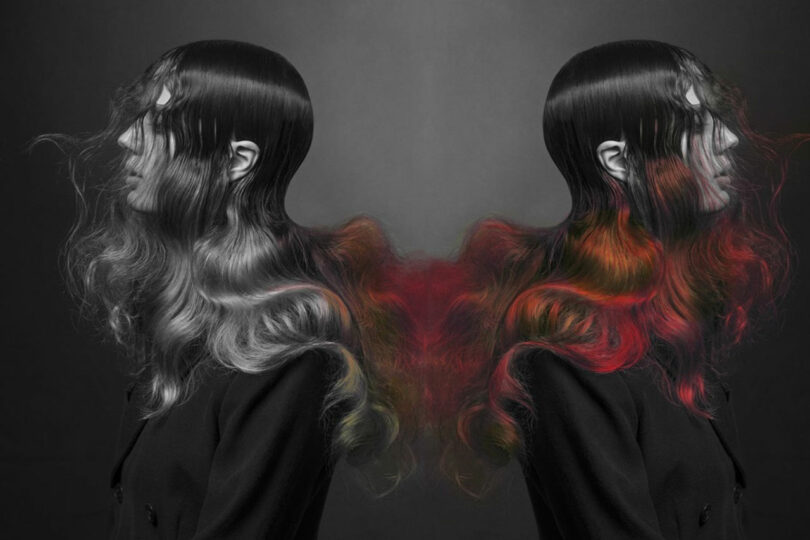
Photo: Courtesy of Dazed
When I began diving into the endless possibilities of color exploration and experimenting with creating my own compounds, I discovered the work of Lauren Bowker’s Unseen Lab, and it had an enormous impact on me. Bowker stands out as one of the few who has built her lab from the ground up, maintaining full ownership of her innovative work. A chemist and textile designer, she masterfully merges these fields, continuously pushing the boundaries of what’s possible in design, especially with an emphasis on creativity and environmental awareness. Her work makes the future feel hopeful and tangible. I’m deeply inspired by how she consistently redefines the potential of textile and color innovation. I aspire to create work that, like hers, brings the future into the present.
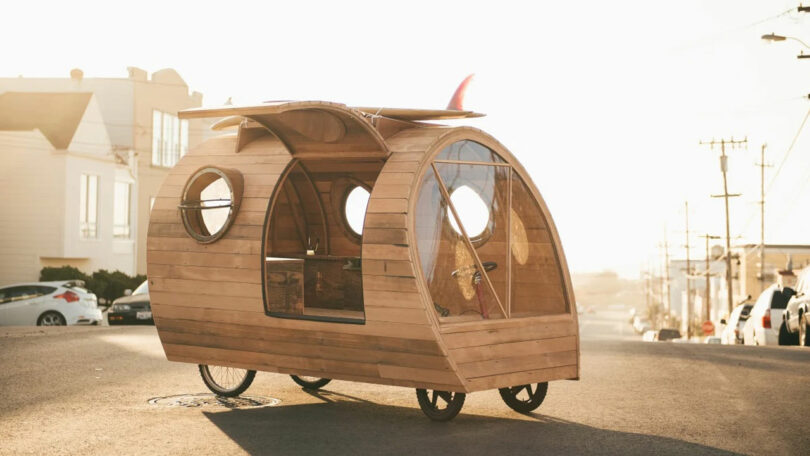
Jay Nelson was one of the first designers I encountered who approaches architecture with such beauty and authenticity. I love his work – it’s uniquely his, and I admire how he repurposes old cars using reclaimed redwood trees. I almost had the chance to intern for him, but I couldn’t make it out to San Francisco because I was finishing my architecture apprenticeships – and that’s when I discovered weaving! Nelson is a true craftsman, and I love his laid-back energy. Whether it’s his homes, installations, or adventure mobiles, you can feel his zest for life in every project. His work awakens a sense of adventure and makes you want to step into his world. When a designer can inspire you in that way, it’s truly powerful. His creations have a poetic elegance that goes beyond the typical adventure aesthetic, and I also admire how he collaborates with brands like Patagonia.
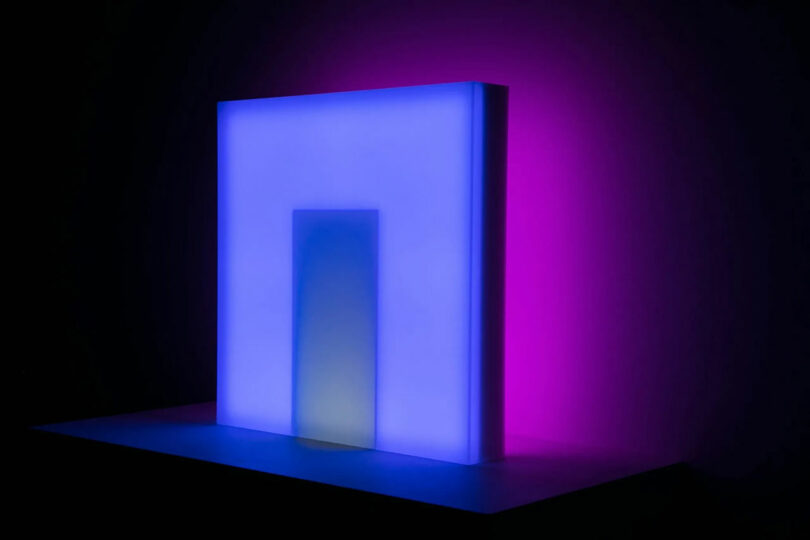
Photo: Courtesy of Tokion
Brian Eno’s visionary work with light and sound has profoundly influenced me. As a child, I was inspired by his light boxes, which led me to create a few of my own. I’ve always been captivated by his ability to animate color; whether in music or visual art, both embody the same vibrational energy. His paintings feel musical, while his music carries a painterly quality. Eno’s deep understanding of sensory design continually inspires my creative process. Although I haven’t yet watched Gary Hustwit’s documentary Eno, I anticipate that it will deepen my connection to his ethos. The essence of his work emerges from the simplicity and power of presence—an aspect that has significantly shaped my artistic journey as I strive to find presence in my creations. Ultimately, it revolves around the power of connection and vibrations.
The photo above is from one of my favorite exhibitions featuring his light boxes. In 2014, Eno created a series of six light box pieces that explore the relationship between musical compositions and seamlessly generated colorscapes produced by interwoven LED lights. His artwork serves as an exploration of time manipulation, possessing neither a beginning nor an end; it reflects form without needing physical rendering. For Eno, light painting and sound design are inseparable, encouraging us to remain still and present in the moment. As he articulated, “If a painting is hanging on a wall, we don’t feel that we’re missing something by not paying attention to it. Yet with music and video, we still have the expectation of some kind of drama. My music and videos do change, but they change slowly, in such a way that it doesn’t matter if you miss a bit.”
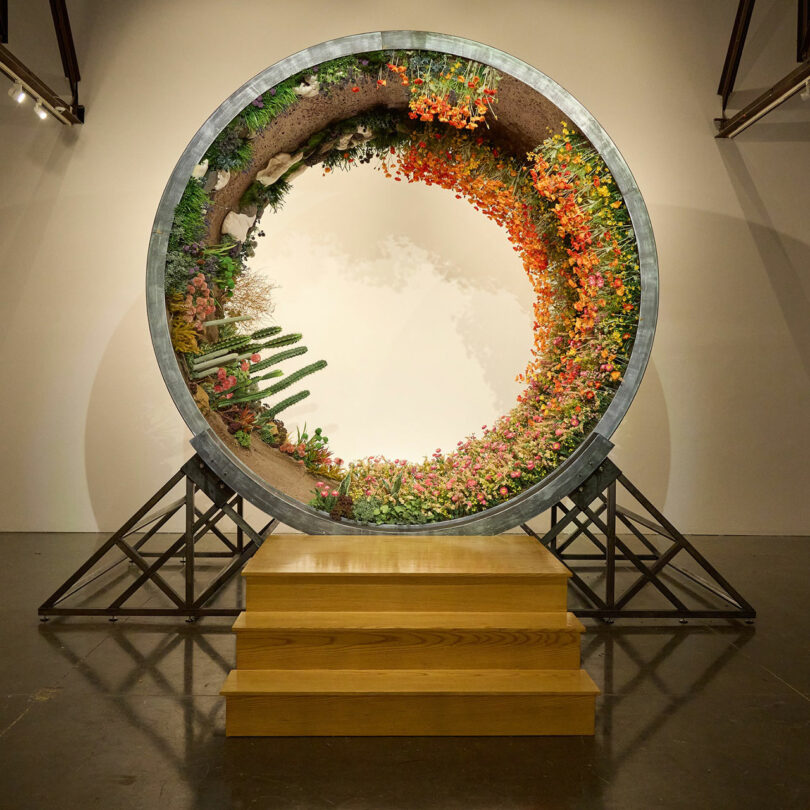
Photo: Courtesy of Puro Diseno
One exhibition that I’m completely captivated by is Merrell’s Wander Wheel. Known as the world’s leading outdoor footwear brand, Merrell takes its mission of connecting people with the outdoors to new heights with this interactive art installation. The Wander Wheel, open to the public for one weekend (September 27-29, 2024), transforms Studio 525 in Chelsea into an immersive, nature-inspired journey. Created in collaboration with PLAYLAB, INC., this installation allows visitors to explore four distinct natural environments from around the world – without ever leaving New York City.
As an artist whose work and conceptual approach to weaving is grounded in merging natural environments with interior spaces, this project resonates with me deeply. It’s both stunning and incredibly clever, speaking to the intersection of nature and art in a way that few things do.
Works by Anya Molyviatis:
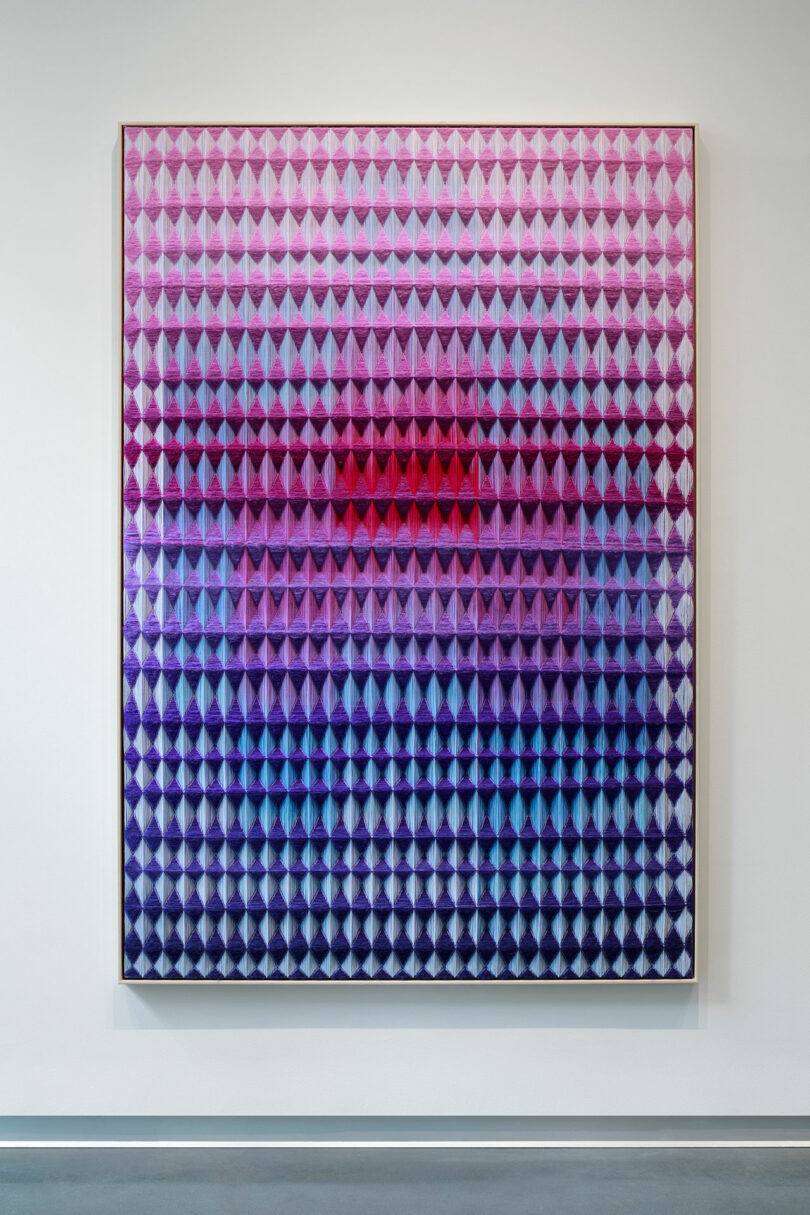
Submerge Exhibition 2024 \\\ Photo: Courtesy of SCAD MOA
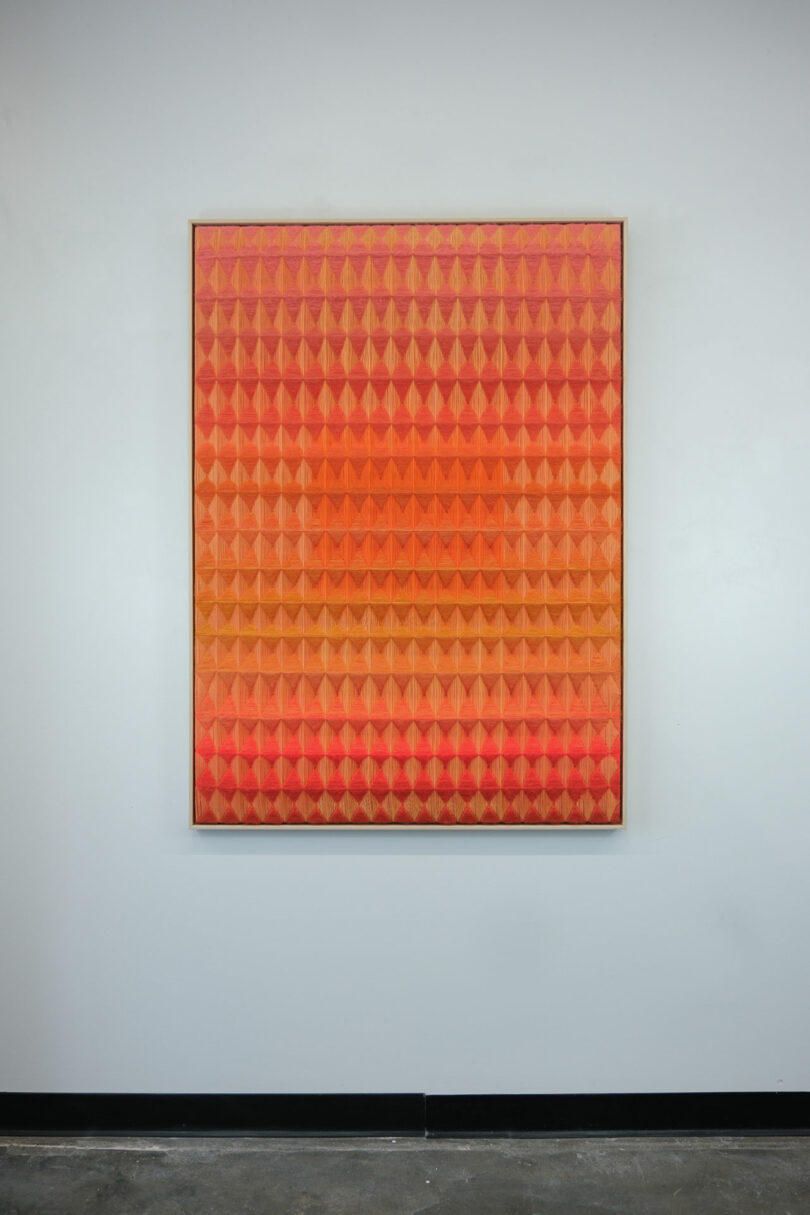
Elevate Exhibition \\\ Photo: Anya Molyviatis
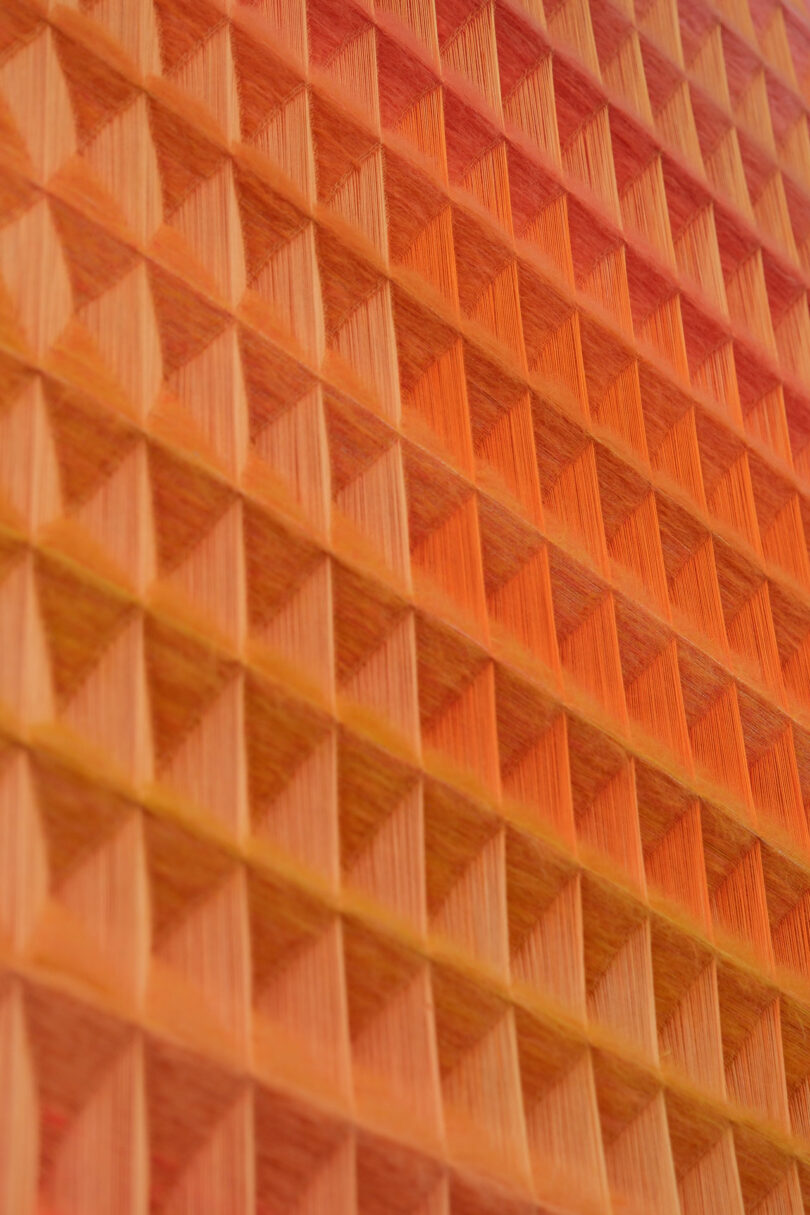
Elevate Exhibition \\\ Photo: Anya Molyviatis
